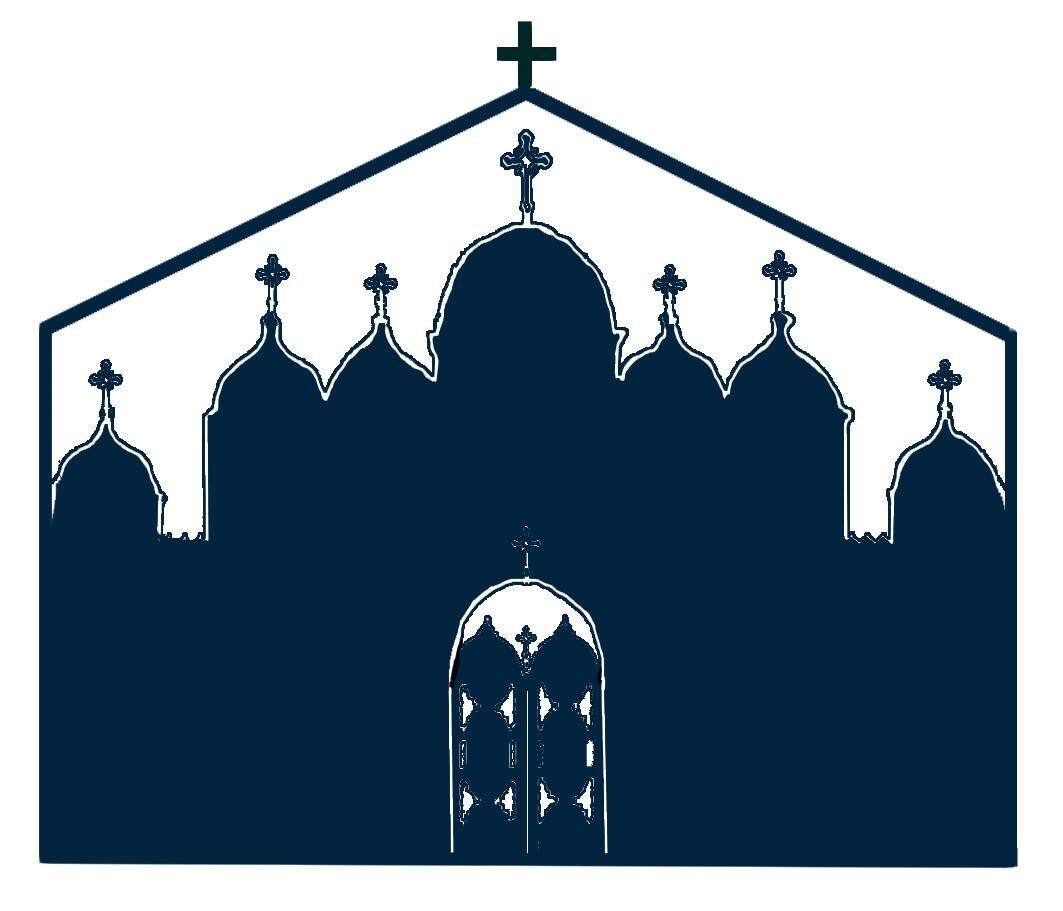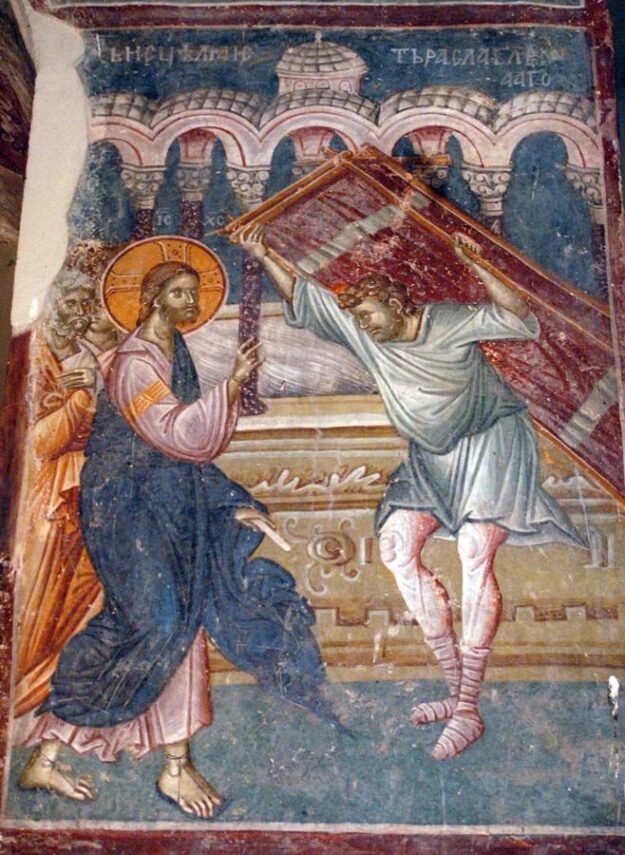Matthew 9:1-8 20/7/2025 Osaka Church
In the name of the Father, the Son, and the Holy Spirit
A sick, bedridden man was carried to Jesus by his family and friends. Jesus told the sick man, “Cheer up. Your sins are forgiven.” And commanded him, “Get up, take up your bed, and go home.”
The man was instantly healed and went home.
This is a happy story. However, if we do not see ourselves in this bedridden man who was told to “cheer up,” this happy story will not give us any joy or hope.
Why is this sick man, and us, depressed and bedridden? Is it because of the illness? No, there are people who are healthy even when they are sick. There are people who cannot stand up physically, but who have a firm mind. If we feel depressed and cannot get up, that is our own problem. It is because we cannot forgive ourselves. We cannot free ourselves from the judgment we place on ourselves. It is because the Lord saw this that he told us, “Your sins are forgiven.”
However, most of this judgment that we place on ourselves is actually judgment from the outside that has been repeated from childhood until today, and has been internalized at some point. Parents scold their children. “You’re sloppy. You’re a coward. You’re selfish. You’re a liar. You’re violent… And then school and society start to weigh in. “You’re a poor student. You’re a problem child. You’re odd…” The accumulation of these judgments eventually robs us of the strength to fight off these cruel judgments, and they have finally become internalized as judgment we place on ourselves.
When the Lord declared to the sick man who had been carried in, “Your sins are forgiven,” the scribes muttered, “This is blasphemy against God; no one has the authority to forgive sins except God.” The authority to forgive is inextricably linked to the authority to judge. What these scribes symbolize is the adults, schools, society, and sometimes ourselves, the “clergy,” who proudly continue to judge helpless children, weak young people, and people who are so earnest that they are cowardly, despite knowing better than anyone that only God has the authority to judge people. As a result of being continually judged by those who have no authority to do so, we end up taking it as “judgment on ourselves” and ultimately deciding that “since I cannot forgive myself, no one’s love, encouragement, or forgiveness can ever “cheer me up or lift me up.” In fact, at this point we become the same as those who continue to judge others even though they have no authority to do so…the very ones who are tormenting us. We do this by judging ourselves.
Christ said, “Repent.” However, this is not to force “self-punishment” on us or to take away our “cheerfulness” with self-pity, which is not the same as awareness of sin. Rather, it is to tell us that the “Kingdom of God” is offered to us as a life in which we welcome Him as Lord, to restore hope within us, to free us once and for all from our past self-punishment and self-pity, to give us the courage to jump into the “new life” that He now offers, and to give us true joy and true “vitality.”
Only one person, the one with the authority to judge others, God who become man, said to this man who had been crushed by a distorted “consciousness of guilt” and had finally become truly ill:
“Believe in the authority I have to forgive sins. Accept my forgiveness and set yourself free. Now, be of good cheer and walk on.”
The Lord suffered and died on the cross. He showed the world the only one with the authority to judge who did not judge, but rather was judged. At that moment, the various “judgments” that had tormented us were judged, and we were set free. “Life” has once again been poured out upon us from the Lord’s Cross.
Holy Apostle John proclaims this plainly, saying:
“For God so loved the world, that he gave his one and only Son, that whoever believes in him shall not perish but have eternal life. God did not send his Son into the world to condemn the world, but that the world through him might be saved; and whoever believes in him is not condemned” (John 3:16-18).

